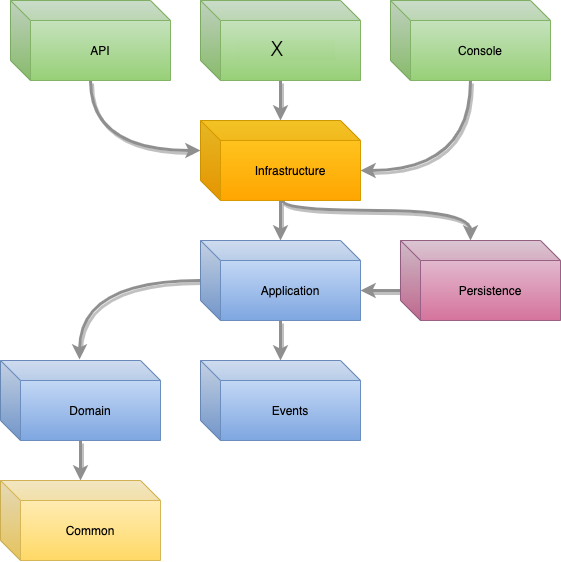Developing with .Net + WebAPI and Clean Architecture
Summary
In order to build great web applications, I recommend to follow the Clean Architecture Template: developers and customers will appreciate this decision given its readability, scalability, and maintainability, which will translate into efficiency and a positive cost/benefit ratio.

-
Prerequites:
- 0.1. IDE(VS Code, Vim, or Notepad)
- 0.2. Net Core SDK (3.1+)
- 0.3. Node.js
- 0.4. Git
-
$ dotnet new –install Clean.Architecture.Solution.Template::1.1.4 to install the project template
-
$ mkdir “NAME” and cd into it (choose “NAME”, this will be assigned to the project)
-
$ dotnet new ca-sln to create a new project
-
$ export ASPNETCORE_Environment=Development
-
$ cd src/WebUI
-
$ dotnet build
-
$ dotnet run
-
$ cd ClientApp
-
$ npm start
Then browse https://localhost:5001
At this point we want to create our custom work, in this case we will create a Contact management page.
For this purpose we need to create the DBTable script, Entity, DTO and Events to handle CRUD actions.
https://github.com/Softwavecr/jCoreDemoApp/pull/3/commits/a0592878af6405bf625b5ff7d4c41bb7152044ec https://github.com/Softwavecr/jCoreDemoApp/pull/3/commits/f41a03b25ff4f42426151b5f18bcfdd1d174d1a7 https://github.com/Softwavecr/jCoreDemoApp/pull/3/commits/9d3c77377f80697a6502cb0e8ffbf877b128b06d
Finally, we will have to create the Front End, in this case, via Angular 10 CLI:
open a console and navigate to the app folder and run
$ ng generate component contact –module app.module
The –module parameter might not be necessary, it was in my case(notice that it is two dashes not one).
